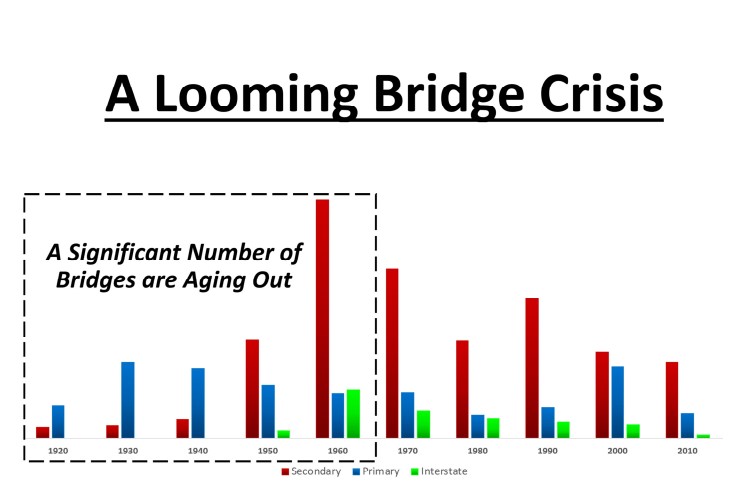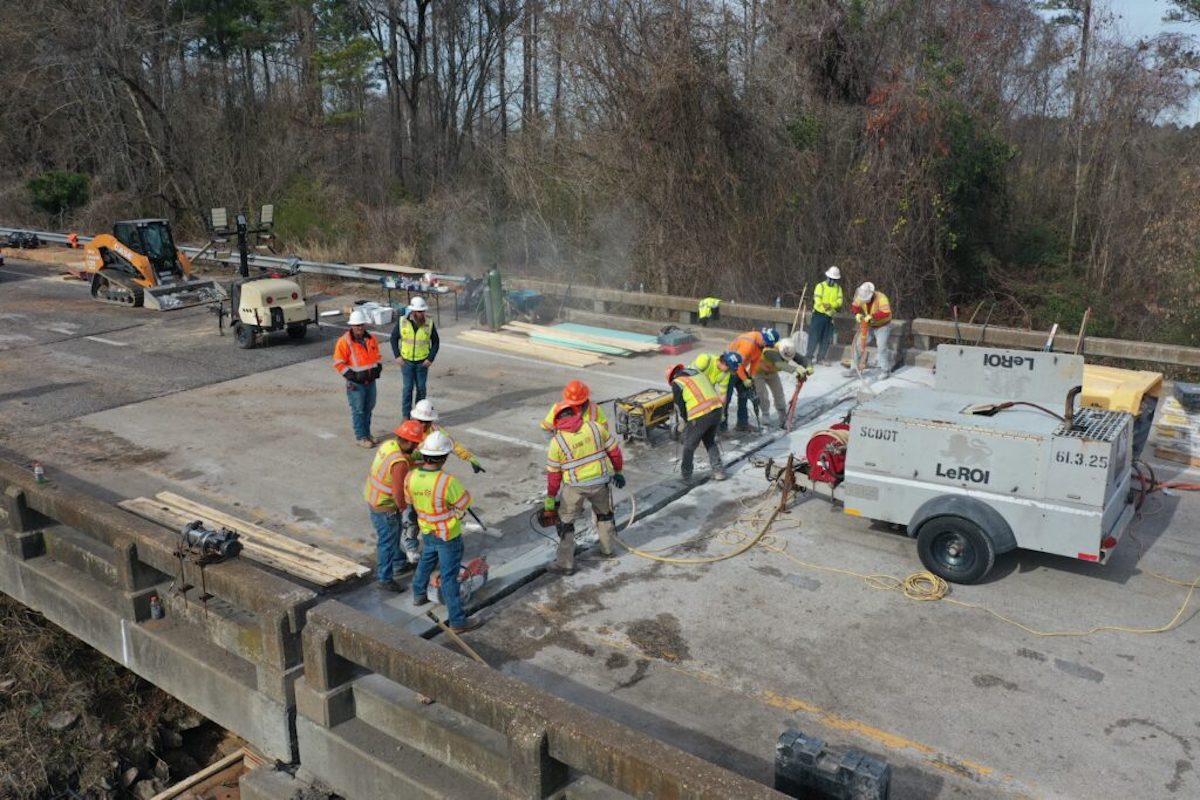By Seanna Adcox
SCDailyGazette.com
COLUMBIA — With the recent emergency closure of a span of Interstate 20 illustrating what he wants to avoid statewide, Gov. Henry McMaster is asking legislators to put $500 million of surplus toward fixing South Carolina’s deteriorating bridges.
Nearly a third of the 8,400 bridges on South Carolina’s roadways are either approaching or already past their intended lifespan. Roughly 500 of them are at least 90 years old, according to the state Department of Transportation.
The aging bridges are statewide and along every kind of road on South Carolina’s extensive system — country roads, major highways and interstates.

The westbound span of I-20 that closed to traffic four days before Christmas should serve as a wake-up call, according to the governor’s office.
His letter Thursday to legislative leaders who control the state’s purse strings asks them to send the DOT at least $500 million from a surplus of state sales taxes that’s accumulated since 2020.
McMaster believes putting the money toward bridge repair is the best way for taxpayers across the state to benefit from a one-time transfer.
“Many of these bridges are 60, 70 and even in excess of 80 years old and are crumbling before our eyes each day,” he wrote in the letter provided to SC Daily Gazette. “Far too many have been closed while others are in such a state of disrepair that the required restrictions render them useless for commercial trucking, school buses or fire trucks needed to serve our state’s increasing population.”
At any given time, roughly 65 bridges are closed statewide, requiring detours that are generally less than 10 miles but can be much longer, depending on the outage. An additional 675 are load-restricted, meaning they’re closed to 18-wheelers, fire trucks and most school buses because they can’t handle the weight, according to the DOT.
Not only do detours create an inconvenience for residents and money-waster for businesses, but they have the potential to endanger lives if a fire truck can’t get somewhere fast enough, the governor’s office said.
“With our state’s aging and crumbling bridges, time is most definitely not on our side,” McMaster wrote to four GOP legislative leaders.
That I-20 bridge temporarily closed across the Wateree River in Kershaw County is actually on the younger end of the state’s problem bridges, at 53 years old.
DOT officials closed it Dec. 21 immediately after an inspection showed the deck — or bridge surface — had sunk along an expansion joint in the bridge, causing a 3-inch gap from one section to another. Without the emergency repairs, which shored up the deck with a steel beam, the bridge would have eventually collapsed, according to DOT officials, who stress they closed it to ensure that didn’t happen.
The bridge was a known problem. Contractors had already been hired for more permanent repairs, allowing for a quick fix to get interstate traffic flowing again in 50 hours.
It could’ve been far worse. Not only were crews prepped, but I-20 happens to be South Carolina’s lowest-volume interstate. DOT officials shudder to think of needing to unexpectedly shut down a bridge on I-95 or I-26, requiring major detours to and from the port, South Carolina’s economic engine.
House Ways and Means Chairman Bruce Bannister said he agrees with the governor that it’s critical to fix the state’s bridges.
The issue is where McMaster suggests getting the money, Bannister said.
Where’s it coming from?
The transfer would come from an account intended for property tax relief, as required by a 2006 law touted as a tax swap benefiting homeowners.
The law, known as Act 388, removed school operating costs off property tax bills of owner-occupied homes and increased the state sales tax by a penny on the dollar — from 5% to 6% — to reimburse counties for the lost revenue.
The law created all sorts of unintended consequences, to include shifting the burden of tax increases primarily to businesses, rental properties and vacation homes. Groups ranging from the state Chamber of Commerce to the state School Boards Association have for years called for a complete overhaul of the much-maligned law. But undoing it would immediately and substantially increase property tax bills for homeowners, making it untouchable for legislators.
The supposed tax swap also didn’t pay for itself — at least, not until 2020. For 13 years, that additional penny sales tax didn’t cover what the state needed to send counties as required. The shortfall exceeded $110 million for five of those years, which the Legislature had to cover with other state taxes.
Then in fiscal year 2020-21, a surplus appeared. That penny-on-the-dollar generated an extra $74.5 million that year. The surplus rose to $199 million in 2022-23 before shrinking. The account is expected to have a cumulative surplus of roughly $600 million by this summer, according to the state Revenue and Fiscal Affairs Office.
Huge gaps in what’s collected from the sales tax and what must be sent to counties are not expected to continue.

But McMaster contends the massive existing excess doesn’t need to just sit in an account. And if legislators are going to spend it, the governor’s office wants to avoid another year of legislators putting hundreds of millions of one-time surplus toward local and pet projects. Last year, earmarks topped $700 million.
McMaster says a one-time, $500 million transfer for emergency bridge replacement will put a major dent in a critical need, while not risking the state’s property tax relief obligations.
Why not?
Bannister, chairman of the House budget-writing committee, counters it’s not nearly that simple.
Any discussion on Act 388 “would be opening a hornet’s nest,” said the Greenville Republican.
Transferring the money would require a law creating a one-time exception. Some legislators will want to use the money in other ways. Others will insist on wholesale tax reform.
“I’m not sure there’s going to be an appetite for that kind of debate in an election year in the General Assembly,” Bannister said.
But the idea will be considered, he said.
Another possibility would be to send the DOT $200 million annually over the next five years, as the agency has requested in its last two budget requests. Last year, McMaster’s budget recommendations and the House’s initial spending plan included the first $200 million toward the $1 billion total request. But the Senate took it out completely.
“Nothing’s off the table because bridges are a critical issue we have to address,” Bannister said. “We’re riding on bridges with a life expectancy of 50 years, and they’re well older.”
Seanna Adcox is a South Carolina native with three decades of reporting experience. She joined States Newsroom in September 2023 after covering the S.C. Legislature and state politics for 18 years. Her previous employers include The Post and Courier and The Associated Press.

